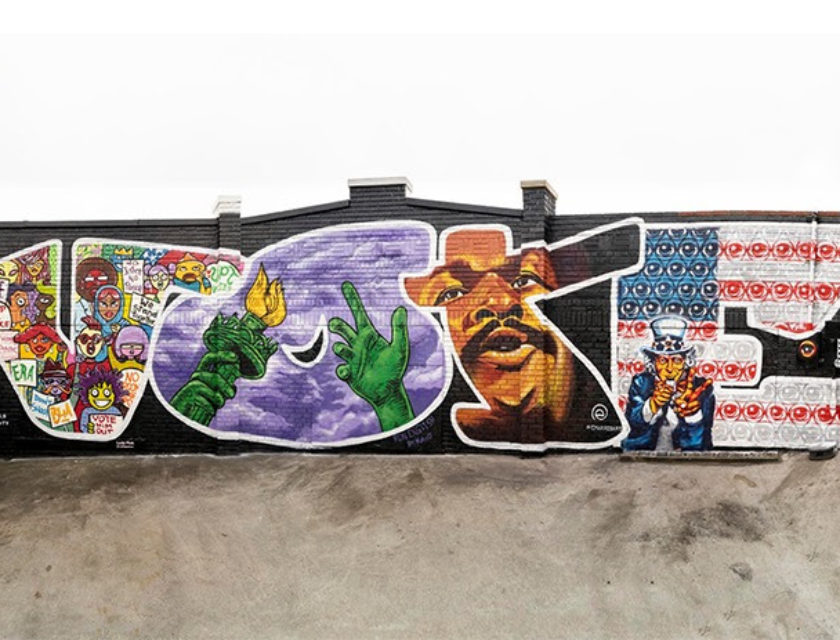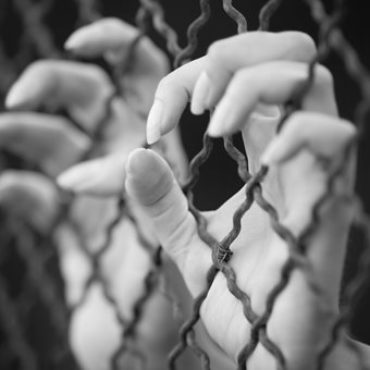Not For Sale – STOP Overlooking Human Trafficking
In as recent as February of this year, nearly 100 people were arrested as part of a national sex trafficking sting operation in Arlington Heights. This happened 3 blocks from where my 10 year old does her homework, hangs out with her best friend and is cared for by my retired mother. The additional adjectives are purposed to put in perspective the helplessness of both my mother and my child. This is 3 blocks from a major park, 3 schools (2 elementary schools and a high school), and 2 community pools. All which seem defenseless and innocent.
October of last year saw a Mount Prospect woman arrested on federal charges in connection to a local sex-trafficking ring that turned out to be part of a much larger, nationwide operation. All of this occurred in a neighborhood my mom also previously lived in, and also used to care for my child everyday, where most of us grew up as kids and as teenagers would often hang out in. Again, blocks away from the nearest school and a neighborhood pool. This is to shed some light on threats that linger in city and suburb and are stories that you would normally here out of a Law and Order or Criminal Minds episode. They are equally terrifying and equate to further tragedy as we have seen the recent story of immigrants trapped in a sweltering trailer in San Antonio, TX. Those that survived shared one breathing hole and were among dead and rotting bodies that were also part of a human trafficking ring.
The Department of Homeland Security defines human trafficking as a “modern-day form of slavery involving the illegal trade of people for exploitation or commercial gain.” In 2012, the International Labor Organization estimated that there are 20.9 million human trafficking victims worldwide. According to the United Nations Office on Drugs and Crime, sexual exploitation is the most commonly identified form ahead of forced labor. Numbers released by the National Human Trafficking Resource Center suggest that also holds true in the U.S., where more than 4,000 cases of sex trafficking were reported. And as a whole human trafficking is a lucrative industry that around the globe rakes in $150 billion. (The Atlantic) There are approximately 20 to 30 million slaves in the world today. According to the U.S. State Department, 600,000 to 800,000 people are trafficked across international borders every year, of which 80% are female and half are children.
BUT,
These numbers cannot be considered accurate. Because of what other businesses are associated with trafficking, such as drug dealing or prostitution; many victims are silenced and are terrified to come forward to authorities to outweigh the risk of being charged with a crime. 3 out 4 victims are trafficked online and of those victims a 2008 New York sample study done by John Jay College of Criminal Justice says that 50% of them consist of boys out of all sexually exploited children. This, to no surprise, goes under-reported. Despite the statistics, the problem continues to escalate.

The Yet She Rise campaign is bringing global awareness with a goal to stop human trafficking, rebuild strength and confidence to the innocent, abused and exploited young women and men. This past weekend outside the bustle of the Wicker Park Fest, a visual campaign was launched with actors bound and mouths taped shut with the words “HELP” scribbled on it. Volunteers handed out leaflets with thoughtful hashtags to spread its anthem to save the innocent, as well as some brief words to describe how “pamper parties” are used to lure aspiring models with spa treatments and a promise to launch their careers, only to be quickly ripped away from their homes and families.

Among those that stopped to view the display were a handful of young women, but neglected to pursue any further knowledge outside of what was handed to them. Often we aren’t bothered by the problems of the world until they reach our front door. With the problems that the city of Chicago is often faced with, its easy to dismiss something that can be happening so quietly, let alone only inches from where another child resides. Like my child.
To continue the campaign that Yet She Rise has launched, you are encouraged to share the hashtags #saveourgirls #stopthepamperparties #nomorenygardcay
#NoMoreNygardCay
Finnish-Canadian designer and executive, Peter Nygård is the founder of Nygård International, a women’s fashion retailer and one of the largest fashion houses in Canada. He is also best known for the legal controversies that have followed him. Accusations against him stretch from abusive behavior practices, tax evasion, sexual harassment, rape, and human trafficking. As predictable for a person as ostentatious as Nygård, he denies all claims. Among his humiliating workplace issues stems the story of his alleged Jordanian sweat shop. A report from the National Labor Committee states that the Finnish businessman employed 1,200 guest workers from Sri Lanka, Bangladesh and India who had “been trafficked to Jordan, stripped of their passports and held under conditions of indentured servitude.” According to the investigation, women were forced to work 15-hour shifts, seven days a week, and were paid half the wages they were owed. A Nygård spokeswoman says a government inquiry found no truth to the allegations. But since the report, the NLC says, factory conditions have improved significantly; passports have been returned and workers now get Fridays off. (Forbes)
In 2003 an American couple sued Nygård in Florida for allegedly tricking them into accepting jobs as managers of his estate (Nygård Cay) in the Bahamas. The couple claimed Nygård routinely flouted Bahamian immigration laws by failing to obtain work permits for employees. They also alleged he mistreated workers by fining them for petty infractions. Nygård had previously sued the couple in the Bahamas for defaming him by using confidential documents they took from the estate. He disputed the allegations in the Florida case but settled in 2007. (Forbes)
Social media is just one way to increase awareness, the organization is looking for volunteers to continue its work. Register at www.yetsherise.org for more information and to apply for volunteer opportunities.


Categories
Recent Posts
- Chuck D, Eminem, Perry Farrell and other artists join LeBron James, Doc Rivers, NBA, MLB, NFL, NHL & MLS arenas and teams to increase in-person voting options.
- Get Out & Vote – Wynwood Poster Campaign
- Karen O & Willie Nelson Cover “Under Pressure”
- SOFI TUKKER is FINALLY Coming To the US – and There’s a New Video!
- The Big Weekend! Five Venues – 3 Nights




Recent Comments